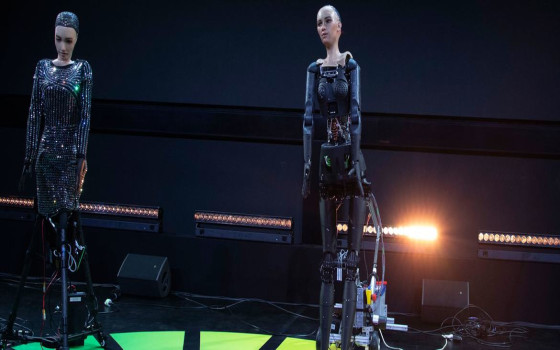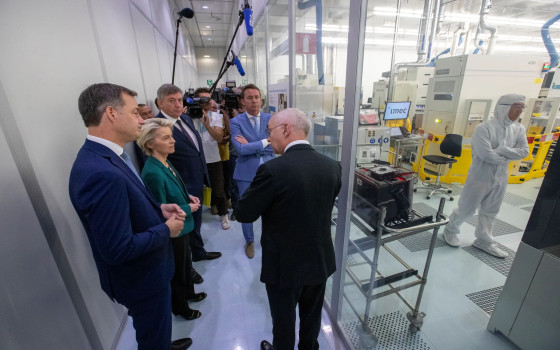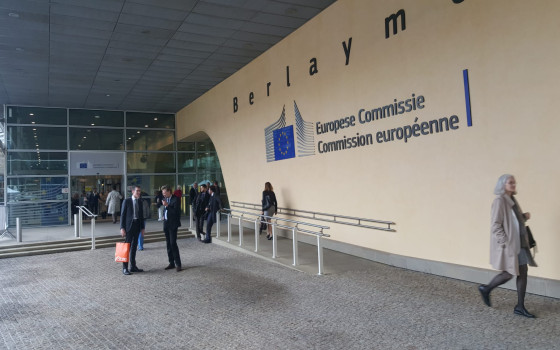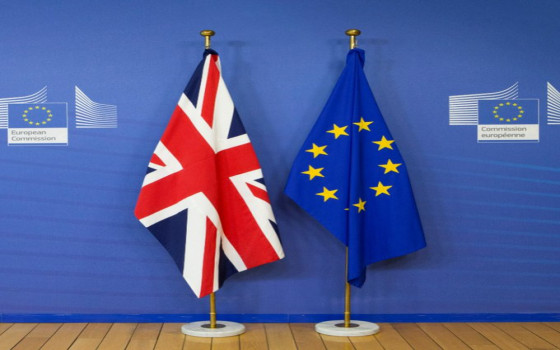
Will artificial intelligence compete with humans in the labor market, or will it provide them with new opportunities?

- Europe and Arabs
- Sunday , 27 August 2023 12:31 PM GMT
New York - Brussels: Europe and the Arabs
A recent study prepared by the International Labor Organization concluded that generative AI will not be the cause of the elimination of jobs, but rather will be a complementary tool for many of them. According to what was published by the United Nations news on the official website of the international organization
The study indicated that the change will be in terms of the quality of work and jobs, as there will be greater focus and independence while performing them using generative artificial intelligence tools.
Talk about crowding out artificial intelligence for humans and replacing them in different fields has increased significantly in the past period with the expansion of the use of its tools, especially generative artificial intelligence, whose star began to emerge since 2020, says a professor of computer science at the Faculty of Science at Helwan University in Egypt and an expert in artificial intelligence techniques. Dr. Ashraf Darwish
Darwish explained to UN News that there is a difference between artificial intelligence and its generative counterpart, as the first relies on "a set of algorithms to perform a number of tasks such as classification or prediction and building arrays of data."
As for the generative artificial intelligence, according to Dr. Darwish's description, it relies on "natural language processing", where a huge collection of data is stored from many sources, including articles, internet pages, and doctoral dissertations, then the generative artificial intelligence model is trained to answer questions from the user through the data. or information available to him.
Darwish said, "This type of artificial intelligence is developing over time. Its algorithms are capable of developing themselves and improving their performance."
benefits for scientific research
The topic of artificial intelligence has become a strong presence in many international events. In the summer of 2023, the UN Security Council devoted a session to discussing the issue of artificial intelligence, which witnessed the participation of the Secretary-General of the United Nations, Antonio Guterres, as he stressed in his message to the meeting that artificial intelligence will have an impact on all aspects of life, adding that this technology is capable of accelerating global development, including It monitors the climate crisis and makes breakthroughs in medical research.
Artificial intelligence tools, especially generative, are starting to make their way to everyone, as there are more than 102 tools currently available, the most famous of which is "ChatGPT", according to Professor of Computer Science, Dr. Ashraf Darwish.
Darwish said that there are many uses for these tools now, especially in the field of scientific research and other fields.
"many problems"
The use of artificial intelligence to serve humanity was also present at the World Summit on Artificial Intelligence for the Common Good, organized by the International Telecommunication Union last July.
At the opening of that summit, the Secretary-General of the United Nations stressed that the accelerating development of generative artificial intelligence must not ignore the damage caused by digital technologies, saying, "The spread of hatred and lies through digital space is now causing grave danger, fueling conflict, death and destruction now, and threatening democracy and human rights." Now, it harms public health and climate efforts now."
These risks remain as stated by Professor of Computer Science, Dr. Ashraf Darwish, saying, "What would happen if ordinary or generative artificial intelligence merged with the virtual world of Metaverse? There will be many problems indeed."
Darwish indicated that these technologies are now being used to create content for artists or departed people, or to deep falsify data and information.
Based on these facts, Dr. Darwish cooperates with other experts within a project involving UNESCO and the Ministry of Higher Education in Egypt to develop a charter of ethics for artificial intelligence that takes into account the principles and charters prepared by UNESCO.
"responsible use"
The Secretary-General of the United Nations had warned that artificial intelligence tools could be used by those with malicious intent. He also stressed the critical need to reach a consensus on what the guidelines for the use of AI should be.
Dr. Darwish said that artificial intelligence cannot be dispensed with or prevented from being used, stressing that "artificial intelligence came to develop people and humanity."
But he warned of the "importance of responsible use" of his tools to achieve maximum benefit. He suggested an international charter to address its dangers and harmful uses.
The ILO study concluded that the social and economic impacts of generative AI will depend to a large extent on how its spread is managed, calling for the need to formulate policies that support an orderly, fair and consultative transition process.
She also stressed the importance of skills training, adequate social protection, and workers' voice to manage the AI transition, otherwise few well-prepared countries and market participants will reap the benefits of these new technologies.
Artificial intelligence and development goals
In order to regulate the work of artificial intelligence, the Secretary-General of the United Nations welcomed the calls of some Member States to establish an international entity to monitor the work of this new technology.
He stressed that the main objective of this entity is "to support countries to make the most of artificial intelligence for the public benefit, to reduce current and potential risks, and to establish and manage internationally agreed mechanisms for oversight and governance."
Dr. Ashraf Darwish praised the initiative of the Secretary-General, hoping that all countries of the world would adhere to such initiatives and procedures.
He added that there could be a role for new technologies in following up the extent to which countries implement decisions and charters related to the use of artificial intelligence.
Darwish expressed his hope that the Sustainable Development Goals Summit in September and the preparatory meetings for the Future Summit that will be held next year will be an opportunity to develop clearer frameworks for controlling artificial intelligence technologies.
He explained that he had participated in a number of discussions recently regarding the use of artificial intelligence tools to achieve the 17 sustainable development goals Darwish said, "Artificial intelligence has a role in education, eradicating illiteracy, and reaching remote areas. It can also be linked to metaverse technology in the field of education. Artificial intelligence also has a role in health, disease discovery, and drug development."
He also pointed out the importance of artificial intelligence in the agricultural sector and facing climate change, adding that the Development Summit should be an opportunity to shed light on the positive role of artificial intelligence in achieving those goals.












No Comments Found